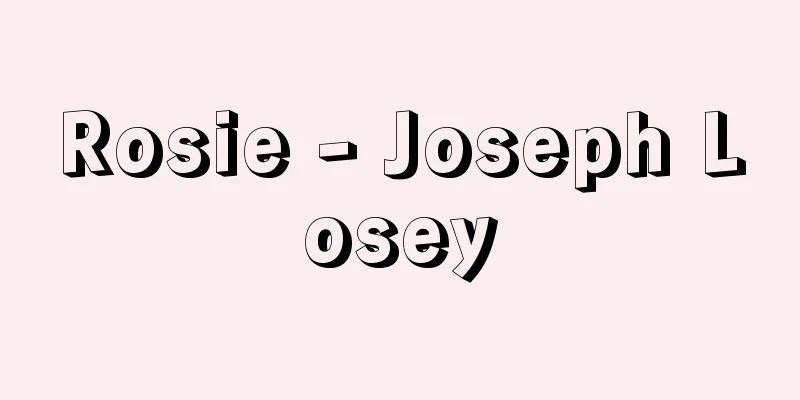Shusaku Endo

|
Novelist. Born on March 27, 1923 in Sugamo, Tokyo, as the second son of his father Tsunehisa (who worked at Yasuda Bank) and mother Iku (who graduated from the violin department of the Ueno Music School). When he was three years old, he moved to Dalian, China, due to his father's job transfer, and when he was ten years old, his parents divorced and he returned to Japan with his mother. He lived in Kobe, and was baptized at Shukugawa Catholic Church at the age of 12 (1935) at the urging of his Catholic aunt. His baptismal name was Paul. He graduated from Nada Middle School in 1940, and entered the preparatory school of Sophia University the following year. In December of that year, he published a critique titled "Metaphysical God, Religious God" in the first issue of the magazine "Sophia". In February 1942, he dropped out of the preparatory school of Sophia University. During this time, he continued to fail the entrance exams for old-style high schools, but thinking of the financial burden on his mother, he moved to his father's house in Kyodo, Tokyo. In 1943, after three years of studying for entrance exams, he entered the preparatory school for the Faculty of Letters at Keio University. However, he was disowned for not applying to medical school as ordered by his father, and left his father's house to continue working part-time. He entered the student dormitory where Catholic philosopher Yoshimitsu Yoshihiko was the dormitory supervisor, and through Yoshimitsu's introduction he met Hori Tatsuo, and both of these men had a deep influence on him, both ideologically and literaryly. He took the first-class B conscription examination, but his conscription was postponed due to pleurisy, and he did not enlist until the end of the war. In 1945, he entered the Department of French Literature at the Faculty of Letters at Keio University. At the recommendation of his former teacher, Sato Saku (1905-96), he became interested in Catholic literature, including F. Mauriac and G. Bernanos. His first critical essay was "Gods and Gods," published in Shiki in 1947. He graduated from the French Literature Department in 1949, with his graduation thesis titled "Poetics in Neo-Thomism." In 1950, he went to France to study Catholic literature as the first foreign student to do so after the war. He studied at the University of Lyon, but returned to Japan in 1953 due to pulmonary tuberculosis. He continued his work as a critic thereafter, and published his first novel, "Until Aden," in 1954. The following year, he was awarded the Akutagawa Prize for "The White Person," and turned to creative writing, establishing himself as an original Christian author with "The Sea and Poison" (Mainichi Publishing Culture Prize) in 1958. He seems to have had a profound conversion during his hospital stay from 1960 to 1962 due to a recurrence of pulmonary tuberculosis, and in his subsequent works, as he matured as a writer, he developed deeper religious themes. His subsequent works, Silence (1966, Tanizaki Junichiro Prize), By the Dead Sea (1973), and Samurai (1980, Noma Literary Prize), show the deepening of the author's lifelong theme of how the "Mother God" as the original image of love can live deeply in the hearts of Japanese people, which is summarized in his representative work from his later years, Deep River (1993, Mainichi Art Prize). At the same time, we cannot overlook another aspect of Endo's literature, the "post-Auschwitz" period, which can be seen in his first full-length novel, Blue Little Grapes (1956), and By the Dead Sea. His wide range of activities, including popular works such as "Obakasan" (1959) and "Watashi ga atsuta te na" (The Woman I Abandoned) (1964), plays such as "Kokugoku no Kuni" (The Golden Country) (1966), and religious essays, reveal his positive intentions and excellent artistic expression as a Catholic writer. At the other end of the spectrum, his humorous essay series "Kori-an" such as "Kori-an Kanwa" (A Chat of Kori-an) (1965) was also well received. He became a member of the Japan Art Academy in 1981, the 10th president of the Japan Pen Club in 1985 (until 1989), a Person of Cultural Merit in 1988, and was awarded the Order of Culture in 1995 (Heisei 7). He continued to fight kidney disease from 1992 onwards, but passed away on September 29, 1996, at the age of 73. [Yasumasa Sato] "Endo Shusaku Historical Novel Collection" vols. 1-7 (1995-96, Kodansha)" ▽ "Endo Shusaku Complete Works" 15 volumes (1999-2000, Shinchosha)" ▽ "Koli-an Chit-chat: Lazy Human Studies, Koli-an Chit-chat: Lazy Love Studies, Koli-an Chit-chat: Lazy Friendships (Kodansha Bunko)" ▽ "Koli-an Chit-chat: Regrets in My Youth (Kadokawa Bunko)" ▽ "Koli-an Chit-chat" (Shincho Bunko) ▽ "Sato Yasumasa (ed.), Appreciation of Contemporary Japanese Literature 25: Shiina Rinzo and Endo Shusaku (1983, Kadokawa Shoten)" ▽ "Endo Shusaku Theory by Kasai Akio (1987, Sobunsha Publishing)" ▽ "Shiina Rinzo and Endo Shusaku" by Sako Junichiro (1989, Asahibunsha)" ▽ "The Clown Carrying the Cross - Korian Sensei and Endo Shusaku" by Kazusa Hideo (1990, Asahibunsha)" ▽ "Portraits of Japanese Writers 22: Endo Shusaku" (1991, Shogakukan)" ▽ "The Vertical Threads of Endo Shusaku and Everything about Endo Shusaku" by Hiroishi Renji (1991, Asahibunsha)" ▽ "The World of Endo Shusaku - Memorial Edition" by Nakamura Shinichiro et al. (1997, Asahi Press)" ▽ "Endo Shusaku - His Literary World" edited by Yamagata Kazumi (1997, National Institute of Research and Development, Seiunsha Publishing)" ▽ "Autobiographies of Authors 98: Endo Shusaku" edited and annotated by Sato Yasumasa (1999, Japan Library Center)" ▽ "A Study of Endo Shusaku's Works" edited by Kasai Akio and Tamaki Kunio (2000, Sobunsha Publishing)" ▽ "A Conversation between Endo Shusaku and Sato Yasumasa: Companions in Life" (Shincho Bunko)" ▽ "Bungeishunju edited: Everything about Endo Shusaku" (Bunshun Bunko)" ▽ "Endo Junko, interviewed by Suzuki Hideko, Talks about her Husband Endo Shusaku" (Bunshun Bunko)" [References] | | |Source: Shogakukan Encyclopedia Nipponica About Encyclopedia Nipponica Information | Legend |
|
小説家。大正12年3月27日東京・巣鴨(すがも)に父常久(安田銀行勤務)、母郁(上野音楽学校バイオリン科卒)の次男として生まれる。父の転勤のため3歳のとき、中国の大連(だいれん)に移り、10歳のとき父母の離婚により母に連れられて帰国。神戸に住み、カトリック教徒の伯母の勧めで12歳(1935)のとき夙川(しゅくがわ)カトリック教会で受洗。洗礼名ポール。1940年(昭和15)灘(なだ)中学校を卒業、翌41年上智大学予科に入学。この年12月、雑誌『上智』第1号に評論「形而上(けいじじょう)的神、宗教的神」を発表。42年2月、上智大学予科を退学。この間旧制高校受験の失敗が続くが、母の経済的負担を考え、東京・経堂(きょうどう)の父の家に移る。1943年、3年間の浪人生活を経て慶応義塾大学文学部予科に入学。しかし父が命じた医学部を受けなかったため勘当され、父の家を出てアルバイト生活を続ける。カトリック哲学者吉満義彦が、舎監をしていた学生寮に入り、吉満の紹介で堀辰雄を知るが、この両者から受けた思想的、文学的影響は深い。徴兵検査は第一乙種であったが、肋膜(ろくまく)炎のため召集延期となり、入隊しないまま終戦を迎える。45年、慶応義塾大学文学部仏文科に進学。恩師佐藤朔(さく)(1905―96)の勧めでF・モーリヤック、G・ベルナノスなどカトリック文学に傾倒。47年『四季』に掲載された「神々と神と」が処女評論。49年仏文科卒業、卒論は「ネオ・トミズムにおける詩論」。50年には戦後最初の留学生としてカトリック文学研究のため渡仏。リヨン大学に学んだが、肺結核のため53年帰国。以後評論活動を続け、54年には初めての小説『アデンまで』を発表。翌年『白い人』により芥川(あくたがわ)賞を受賞、創作活動に転じ、58年『海と毒薬』(毎日出版文化賞)で独自なキリスト教作家としての地歩を築く。 こののち肺結核再発のため1960年から62年に至る入院生活中に深い回心があったとみられ、以後の作品には作家的成熟とともに、より深い宗教的主題の展開がみられる。『沈黙』(1966。谷崎潤一郎賞)、『死海のほとり』(1973)、『侍』(1980。野間文芸賞)と続く展開には、愛の原像としての「母なる神」が、いかにして日本人の心のなかに深く生きうるかという作家終生の主題の深まりがみられ、これは晩期の代表作『深い河』(1993。毎日芸術賞)一編へと集約される。同時に最初の長編『青い小さな葡萄(ぶどう)』(1956)や『死海のほとり』にみる、留学時以来の課題ともいうべき「アウシュウィッツ以後」という、遠藤文学におけるいまひとつの側面も見逃すことはできまい。また『おバカさん』(1959)、『わたしが・棄てた・女』(1964)などの通俗的作品、『黄金の国』(1966)ほかの戯曲、さらには宗教的エッセイなどその幅広い活動のうちに、カトリック作家としての積極的意図と優れた表現活動をうかがうことができる。その一方の極である、『狐狸庵閑話』(1965)などユーモラスなエッセイ「狐狸庵」シリーズも好評であった。1981年芸術院会員、85年には日本ペンクラブ第10代会長(~89)、88年文化功労者、95年(平成7)文化勲章受章。1992年以後腎臓(じんぞう)病のため闘病生活が続いたが、96年9月29日永眠、73年の生涯であった。 [佐藤泰正] 『『遠藤周作歴史小説集』1~7(1995~96・講談社)』▽『『遠藤周作文学全集』全15巻(1999~2000・新潮社)』▽『『狐狸庵閑話 ぐうたら人間学』『狐狸庵閑話 ぐうたら愛情学』『狐狸庵閑話 ぐうたら交友録』(講談社文庫)』▽『『狐狸庵閑話 わが青春に悔いあり』(角川文庫)』▽『『狐狸庵閑話』(新潮文庫)』▽『佐藤泰正編著『鑑賞日本現代文学25 椎名麟三・遠藤周作』(1983・角川書店)』▽『笠井秋生著『遠藤周作論』(1987・双文社出版)』▽『佐古純一郎著『椎名麟三と遠藤周作』(1989・朝文社)』▽『上総英郎著『十字架を背負ったピエロ――狐狸庵先生と遠藤周作』(1990・朝文社)』▽『『群像日本の作家22 遠藤周作』(1991・小学館)』▽『広石廉二著『遠藤周作の縦糸』『遠藤周作のすべて』(1991・朝文社)』▽『中村真一郎他著『遠藤周作の世界――追悼保存版』(1997・朝日出版社)』▽『山形和美編『遠藤周作――その文学世界』(1997・国研出版、星雲社発売)』▽『佐藤泰正編・解説『作家の自伝98 遠藤周作』(1999・日本図書センター)』▽『笠井秋生・玉置邦雄編『作品論 遠藤周作』(2000・双文社出版)』▽『『対談遠藤周作・佐藤泰正 人生の同伴者』(新潮文庫)』▽『文芸春秋編『遠藤周作のすべて』(文春文庫)』▽『遠藤順子著、聞き手・鈴木秀子『夫・遠藤周作を語る』(文春文庫)』 [参照項目] | | |出典 小学館 日本大百科全書(ニッポニカ)日本大百科全書(ニッポニカ)について 情報 | 凡例 |
<<: Cylindrical fold - Entojo fold
Recommend
Tax office - First
One of the government offices established in koku...
Recessive
Regarding a pair of allelic traits in an organism...
Instrumental music (English: instrumental music)
The opposite of vocal music, it is a general term...
South Georgia Island
A British island in the western South Atlantic. It...
Explorer
A program for managing files on Windows in an easy...
Equatorial conjunction - Equatorial conjunction
Please see the "Axial Bond" page. Sourc...
Yasutomi's Chronicle
This is the diary of Gon Daigeki Nakahara Yasutom...
Heike government
The government established by Taira no Kiyomori a...
Askhabad
…It is located 40 km from the Iranian border, in ...
One of a kind
〘Noun〙 A banquet where each participant brings a t...
Aristoxenos
A Greek philosopher from the 4th century BCE, and ...
Hideo Nagata
Poet and playwright. Born in Tokyo. Older brother...
Hamaide Soushi - Hamaide Soushi
Otogi-zoshi. One of the Shibukawa versions. Minamo...
Du Fay, CFde (English spelling) DuFayCFde
…This was an important discovery that not only di...
Masatsuna Kutsuki
A feudal lord in the late Edo period. Lord of Fuk...









